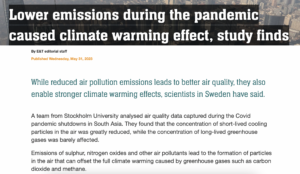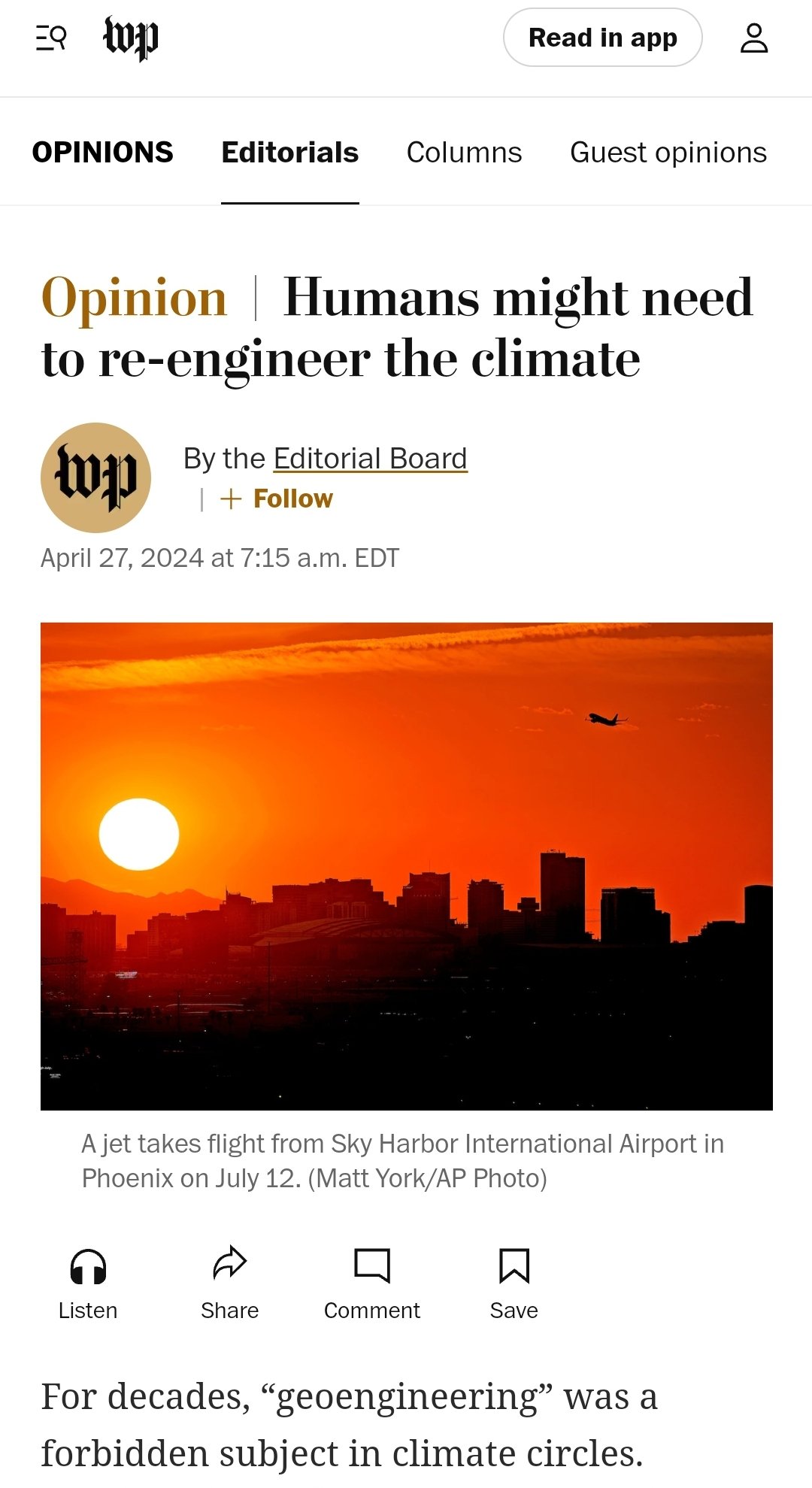Emissions of sulphur, nitrogen oxides and other air pollutants lead to the formation of particles in the air that can offset the full climate warming caused by greenhouse gases such as carbon dioxide and methane.
But there has been a lack of knowledge about this ‘masking effect’. In order to determine the size, large-scale experiments involving huge regions would be required, which is infeasible, except during the Covid pandemic when those conditions were replicated.
The activity of many industries and transportation worldwide decreased due to pandemic restrictions in spring 2020.
At Hanimaadhoo, a measuring station in the northernmost Maldives off the coast of India, researchers have been measuring the atmospheric composition and radiation for two decades.
The measuring station is strategically placed to capture air masses from the Asian subcontinent and located in an area with few regional emission sources.
It was discovered that while the concentrations of polluting short-lived air particles decreased significantly, the concentrations of longer-lived greenhouse gases were barely affected in the air mass over South Asia.
The cooling effect of the aerosols comes from the fact that they reflect incoming solar radiation back into space. With a lower aerosol content, there is less cooling, and thus less ‘masking’ of the warming effect of the significantly longer-lived climate gases.
Measurements taken at the same time over the northern Indian Ocean revealed a 7 per cent increase in solar radiation reaching the Earth’s surface, thus increasing temperatures.
“Through this large-scale geophysical experiment, we were able to demonstrate that while the sky became bluer and the air cleaner, climate warming increased when these cooling air particles were removed,” said Professor Örjan Gustafsson, who led the study.
The results show that a complete phasing out of fossil-fuel combustion in favour of renewable energy sources with zero emissions could result in rapid ‘unmasking’ of aerosols, while greenhouse gases linger.
“During a couple of decades, emission reductions risk leading to net climate warming due to the ‘masking’ effect of air particles, before the temperature reduction from reduced greenhouse gas emissions takes over. But despite an initial climate warming effect, we obviously still urgently need a powerful emission reduction,” Gustafsson added.
#
The Hill: Climate paradox: Emission cuts could ‘unmask’ deadly face of climate change, scientists warn – One the one hand, cutting fossil fuel pollution is necessary for avoiding severe destruction over the long term. But such cuts will make the earth much hotter in the short term. …
These cuts remain one of the only examples of successful cuts to climate-warming pollution, but the new study found that those pandemic-era cuts in air pollution led to a rise in global temperatures. The findings, published on Wednesday in the journal NPJ Climate and Atmospheric Science, unveil a stark paradox at the heart of human-caused climate change.





